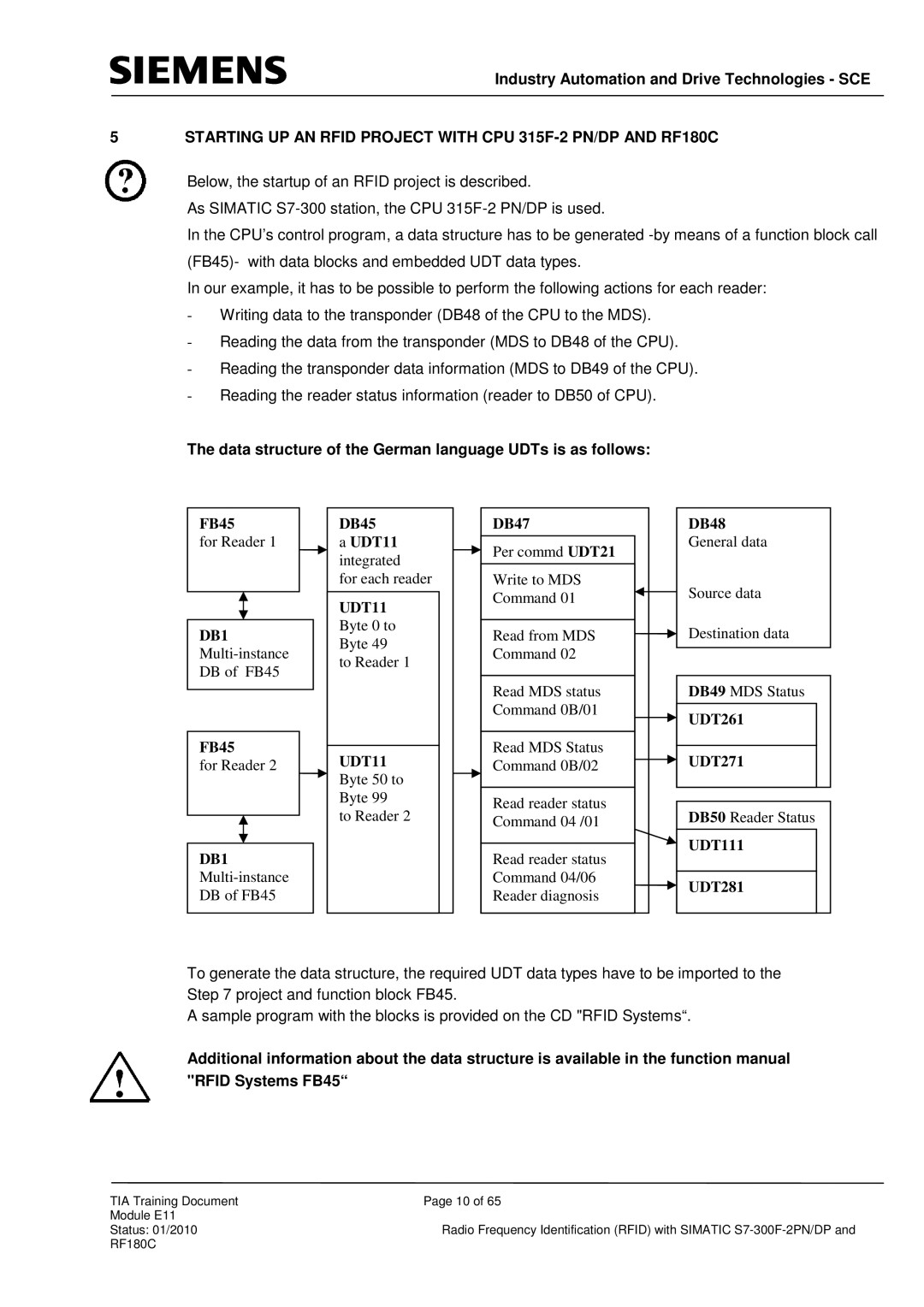
Industry Automation and Drive Technologies - SCE
5 | STARTING UP AN RFID PROJECT WITH CPU |
Below, the startup of an RFID project is described.
As SIMATIC
In the CPU’s control program, a data structure has to be generated
In our example, it has to be possible to perform the following actions for each reader:
-Writing data to the transponder (DB48 of the CPU to the MDS).
-Reading the data from the transponder (MDS to DB48 of the CPU).
-Reading the transponder data information (MDS to DB49 of the CPU).
-Reading the reader status information (reader to DB50 of CPU).
The data structure of the German language UDTs is as follows:
FB45
for Reader 1
DB1
DB of FB45
FB45
for Reader 2
DB1
DB of FB45
DB45
aUDT11 integrated
for each reader
UDT11 Byte 0 to Byte 49
to Reader 1
UDT11 Byte 50 to Byte 99
to Reader 2
DB47
Per commd UDT21
Write to MDS
Command 01
Read from MDS Command 02
Read MDS status Command 0B/01
Read MDS Status Command 0B/02
Read reader status Command 04 /01
Read reader status Command 04/06 Reader diagnosis
DB48
General data
Source data
Destination data
DB49 MDS Status
UDT261
UDT271
DB50 Reader Status
UDT111
UDT281
To generate the data structure, the required UDT data types have to be imported to the Step 7 project and function block FB45.
A sample program with the blocks is provided on the CD "RFID Systems“.
Additional information about the data structure is available in the function manual "RFID Systems FB45“
TIA Training Document | Page 10 of 65 |
Module E11 |
|
Status: 01/2010 | Radio Frequency Identification (RFID) with SIMATIC |
RF180C |
|
